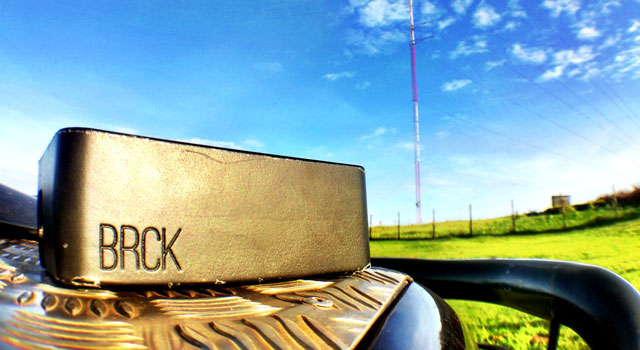
Kickstarter project BRCK, the brainchild of Kenyan nonprofit technology outfit Ushahidi, hopes to raise $125 000 to build a communications device that connects users to the Internet using any means possible, even when the power is out.
And it’s well on its way to achieving its first objective. In little more than three days, the project has raised $50 000 in Kickstarter funding pledges and attracted 340 backers, among them technology author and consultant Clay Shirky.
But how did a rugged piece of hardware, described by Ushahidi as a “backup generator for the Internet”, come out of a nonprofit that previously focused on only software?
“BRCK is a natural progression considering Ushahidi’s DNA,” explains Juliana Rotich, the company’s executive director and one of its three founders. “When we encounter a problem, we try to find a solution. One of our biggest problems in Nairobi is frequent power cuts. I suppose the BRCK is really about scratching our own itch. We’re addicted to the Internet, but in a difficult environment.”
The project’s idea is to keep users connected with minimal effort by moving seamlessly between wired Ethernet, Wi-Fi and mobile data zones and failing over to a robust built-in battery automatically whenever the power grid goes down — a frequent occurrence in many parts of Africa.
The BRCK will have a software interface so users can manage the device from a computer or phone. “The idea is to manage the BRCK using a simple interface like the sort you use to configure a regular router,” Rotich says.
Future versions will include support for multiple Sim cards. “We’ve been testing the device in all sorts of environments, and multi-Sim support is definitely a need.”
Though the BRCK has the potential to be useful in both developing and developed markets, Rotich says the obvious target is “fellow Kenyans and fellow Africans”. Despite this, many of the early backers have come from the US. “We sold 150 early-bird units and most of those early backers are Americans.”
Early backers include Arduino evangelist Tom Igoe, author Shirky and the director of the MIT Center for Civic Media, Ethan Zuckerman. Rotich says receiving support from people of this calibre has greatly encouraged the team.
The BRCK will cost about US$200/unit and will be available online only at first, though Rotich says it’s open to supplying retailers later. The device is being designed by teams in Nairobi and California. The Kickstarter funding will allow for the manufacture of 2 000 units, which will happen in Shenzhen, China.
The company hopes to have a first version of the product delivered within the next six months, and is aiming for four months. A second version should be available by the end of the year.
Despite being based in Kenya, Rotich says BRCK had no problem launching its Kickstarter campaign because much of its team has ties in one way or another with the US. “We’re privileged to have these sorts of global links,” she says. “Perhaps it’s a nod to the value of diversifying your team and having a presence in places that will be advantageous.”
The BRCK project counts among its backers Erik Hersman, Ushahidi’s operations and strategy director, who started the iHub innovation hub in Nairobi in 2010.
Whatever happens to BRCK in future versions, the intention is to keep it as a device that helps people get online easily, often in challenging conditions. “We want to keep it rugged but beautiful,” Rotich says. “It needs to be something we consider cool and that we actually like.” — (c) 2013 NewsCentral Media

